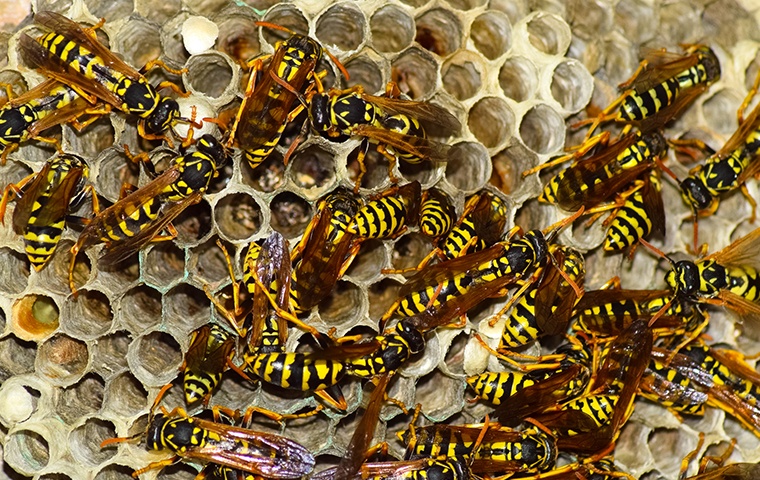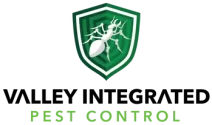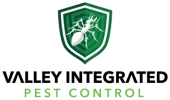Because of their terrible stings and hostile nature, wasps are often feared. Despite their value to the ecosystem, you might be anxious due to their unpredictable behavior, particularly if they feel threatened. The likelihood of an unpleasant encounter may be decreased by being aware of what makes a wasp attack. This article examines the typical reasons why wasps become aggressive and provides easy-to-follow safety advice.

Why Do Wasps Act Aggressively?
Wasps are inherently defensive animals. They often use violence as a protection technique, and if they perceive that their nest or themselves are under danger, they may become hostile. They will attack without hesitation if they detect a danger since it is their inclination to defend their colony and queen. Wasps are not naturally aggressive, although they may sting more often given certain circumstances or actions.
Breaking Up a Wasp Nest
Wasps attack when their nest is disrupted, which is one of the primary causes. Being very protective of their territory, wasps will react violently to anything that approaches their house too closely. Wasps often construct their nests in protected areas, such as within tree branches, attics, or beneath eaves. The wasps will perceive an infringement if a human or animal approaches the nest too closely, and they will swarm to defend it.
Unexpected Motions and Vibrations
Wasps are very sensitive to vibrations and movement in their environment. Their protection mechanism may be activated by abrupt, fast movements. A wasp may get alarmed and feel threatened if you jerk your hand or flee rapidly from them. They may initially attempt to scare the invader by buzzing, rather than striking right away. They could, however, become hostile and sting if they feel threatened any longer.
How the Scent of Threats Triggers Attacks
Additionally, wasps have an excellent sense of smell. They are able to detect the smells of other animals, particularly possible predators. For example, a wasp may get anxious or interested if it smells strongly of perspiration or potent scents. If wasps believe you are a threat to their colony, they are more likely to act aggressively. Furthermore, a wasp may get frightened and strike if it feels constrained.
Wasps Are Drawn to Food and Drink
Especially in late summer and autumn, food and sweet beverages often attract wasps. Food is plentiful in garbage cans, outdoor events, and picnic grounds, which attracts them most especially. Should a wasp find a food supply close by, it may become territorial over the surrounding region and act aggressively should someone go too near. Covering food and promptly cleaning spillage will assist to prevent attracting wasps.
Protecting Their Queen
The queen is the wasp colony’s most significant member. She is the one who produces the eggs and makes sure the colony survives. Wasps will attack anything that threatens their queen’s safety since they are very protective of her. The whole colony may turn hostile in defense if the queen feels threatened or if her nest is in jeopardy. Avoiding any nest in such circumstances is advised since wasps will swarm to defend their queen.
What Happens During a Wasp Sting?
Wasps may choose to sting if they feel trapped or provoked, however this is not always the case. Wasps may strike repeatedly without dying, in contrast to bees, which can only sting once. Particularly for those who are sensitive to wasp venom, a sting may cause pain, swelling, and discomfort. It’s critical to treat the stung area immediately and, if necessary, seek expert assistance.
What Attracts Wasps to Humans?
Additionally, some human traits and activities may attract wasps to you. For instance, wasps may be drawn to bright clothes due to its flower-like hues. They could also be drawn to loud sounds and quick motions. The smell of food might attract wasps to you if you are eating or drinking outdoors. You may lessen the likelihood of drawing a wasp by staying composed and staying away from strong smells or frenetic movements.
How Can Wasps Be Avoided?
There are a few things you can do to reduce the likelihood of an attack. First, stay away from places like trees, fences, and beneath building eaves where wasps have their nests. Avoid going near or disturbing a wasp nest if you spot one. If necessary, the nest may be safely moved by a professional wasp removal service. Avoiding strong scents and dressing in neutral hues might also help you keep hidden from wasps. Lastly, to keep them away, always wipe up spills of food and beverages.
The Triggers That Lead to Wasp Defense Behavior
Although wasps are not naturally hostile, they may attack in response to certain stimuli. If they feel endangered, they will protect their area, their queen, and their nests. You may lessen the likelihood of an unpleasant encounter by being aware of their behavior and steering clear of typical triggers, such as disrupting a nest, making abrupt movements, and strong odors. It’s important to remain calm and leave the area if you do find yourself in a scenario where wasps are acting aggressively. To tackle the situation responsibly if the issue continues, think about hiring a professional wasp removal service.Avoid taking the chance of an assault if you’re having wasp problems. For expert, secure, and efficient wasp removal services, get in touch with Valley Integrated Pest Control right now. Our staff is prepared to safeguard you and your house!





